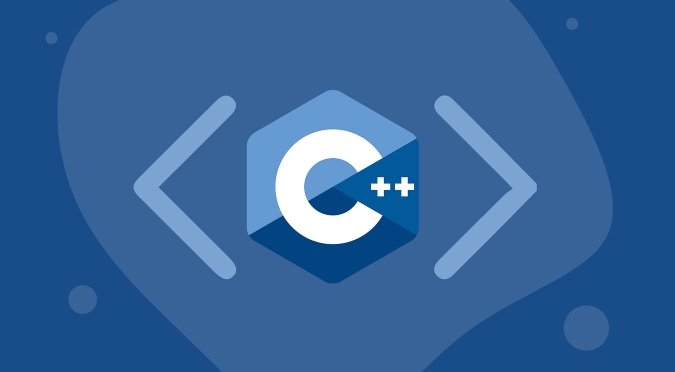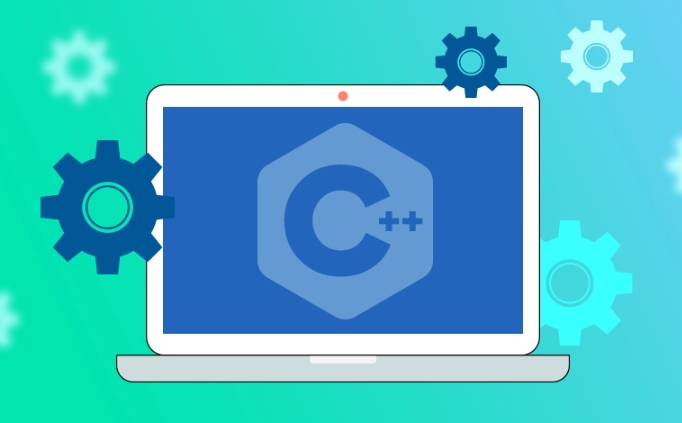C template argument deduction for class templates (CTAD) in C 17
Jul 06, 2025 am 12:52 AMCTAD is a feature introduced in C 17, which is used to automatically deduce template parameter types when creating class template instances, making the code more concise. 1. It deduces template parameters through constructor parameter types; 2. It supports custom classes, and if necessary, the derivation rules can be controlled through the deduction guide; 3. There are restrictions, such as they are not applicable to partial specialization, derivation may not be intuitive, and are affected by implicit conversions, etc.

CTAD (Class Template Argument Deduction) is a feature introduced by C 17. Its main function is to allow the compiler to automatically deduce template parameter types when creating class template instances. This is very similar to the type derivation of function templates, but before C 17, the template parameters of class templates had to be explicitly specified, which in some cases seemed cumbersome.

Why do you need CTAD?
When there is no CTAD, for example, if you use std::pair or std::vector , you need to write this:

std::pair<int, double> p(1, 2.0);
If you have a temporary variable or the construction is complicated, explicitly writing the type becomes repetitive and prone to errors. With CTAD, you can write it directly:
std::pair p(1, 2.0); // The compiler will automatically deduce int and double
This makes the code more concise, especially when the template parameters are long or deep nested.

How to use CTAD?
The core of CTAD is that the parameter type of the "constructor" determines the template parameter type of the class template. The compiler will deduce template parameters based on the actual parameters passed to the constructor.
For example:
template<typename T>
struct MyVector {
MyVector(T a, T b) {}
};
MyVector v(3, 5.0); // Deduce T = double, because 3 can be converted to double Here, the compiler sees that two parameters are int and double , but the constructor requires that the two parameters are of the same type, so int is converted into double .
However, it should be noted that not all cases can be derived correctly. For example, the following situation will fail:
MyVector v(3, "hello"); // Error: Unable to unify types
How to support CTAD in custom classes?
If the class template you wrote yourself also wants to support CTAD, you don't need to do anything extra. As long as the constructor parameters have clear types, the compiler can help you deduce them.
But sometimes you want to control the derivation method, such as enabling a certain derivation rule only under a specific constructor, you need to write a "deduction guide".
For example:
template<typename T>
struct Wrapper {
template<typename U>
Wrapper(U value) : data(static_cast<T>(value)) {}
private:
T data;
};
// deduction guide
template<typename U>
Wrapper(U) -> Wrapper<typename std::decay<U>::type>;This way when you write:
Wrapper w(42.0f);
It will be derived as Wrapper<float></float> instead of the default possible double .
CTAD Limitations and Precautions
- Not available for partial specialization : CTAD is derived based on the constructor of the main template. If the class template has multiple specialized versions, unexpected results may occur.
- Derivation is not always intuitive : for example, if the constructor uses template parameter packages, overload constructors, etc., the derivation result may not meet expectations.
- Note the effect of type conversion : Just like
intmentioned above is converted todouble, some implicit conversions affect the final derived type.
Examples of FAQs:
- Too many constructor templates lead to ambiguity
- The default parameters were used but no value was passed, resulting in the inability to derivate
- Type alias or typedef confuses the actual type
Let's summarize
CTAD is a convenient gadget that allows you to write less duplicate template parameters. But it is not omnipotent, and sometimes it still has to manually specify the type, especially when the logic is complex or the intention is not clear enough.
Basically that's it.
The above is the detailed content of C template argument deduction for class templates (CTAD) in C 17. For more information, please follow other related articles on the PHP Chinese website!

Hot AI Tools

Undress AI Tool
Undress images for free

Undresser.AI Undress
AI-powered app for creating realistic nude photos

AI Clothes Remover
Online AI tool for removing clothes from photos.

Clothoff.io
AI clothes remover

Video Face Swap
Swap faces in any video effortlessly with our completely free AI face swap tool!

Hot Article

Hot Tools

Notepad++7.3.1
Easy-to-use and free code editor

SublimeText3 Chinese version
Chinese version, very easy to use

Zend Studio 13.0.1
Powerful PHP integrated development environment

Dreamweaver CS6
Visual web development tools

SublimeText3 Mac version
God-level code editing software (SublimeText3)

Hot Topics
 C Polymorphism : is function overloading a kind of polymorphism?
Jun 20, 2025 am 12:05 AM
C Polymorphism : is function overloading a kind of polymorphism?
Jun 20, 2025 am 12:05 AM
Yes, function overloading is a polymorphic form in C, specifically compile-time polymorphism. 1. Function overload allows multiple functions with the same name but different parameter lists. 2. The compiler decides which function to call at compile time based on the provided parameters. 3. Unlike runtime polymorphism, function overloading has no extra overhead at runtime, and is simple to implement but less flexible.
 What Are the Different Kinds of Polymorphism in C ? Explained
Jun 20, 2025 am 12:08 AM
What Are the Different Kinds of Polymorphism in C ? Explained
Jun 20, 2025 am 12:08 AM
C has two main polymorphic types: compile-time polymorphism and run-time polymorphism. 1. Compilation-time polymorphism is implemented through function overloading and templates, providing high efficiency but may lead to code bloating. 2. Runtime polymorphism is implemented through virtual functions and inheritance, providing flexibility but performance overhead.
 C : Is Polymorphism really useful?
Jun 20, 2025 am 12:01 AM
C : Is Polymorphism really useful?
Jun 20, 2025 am 12:01 AM
Yes, polymorphisms in C are very useful. 1) It provides flexibility to allow easy addition of new types; 2) promotes code reuse and reduces duplication; 3) simplifies maintenance, making the code easier to expand and adapt to changes. Despite performance and memory management challenges, its advantages are particularly significant in complex systems.
 C Destructors: Common Errors
Jun 20, 2025 am 12:12 AM
C Destructors: Common Errors
Jun 20, 2025 am 12:12 AM
C destructorscanleadtoseveralcommonerrors.Toavoidthem:1)Preventdoubledeletionbysettingpointerstonullptrorusingsmartpointers.2)Handleexceptionsindestructorsbycatchingandloggingthem.3)Usevirtualdestructorsinbaseclassesforproperpolymorphicdestruction.4
 Polymorphism in C : A Comprehensive Guide with Examples
Jun 21, 2025 am 12:11 AM
Polymorphism in C : A Comprehensive Guide with Examples
Jun 21, 2025 am 12:11 AM
Polymorphisms in C are divided into runtime polymorphisms and compile-time polymorphisms. 1. Runtime polymorphism is implemented through virtual functions, allowing the correct method to be called dynamically at runtime. 2. Compilation-time polymorphism is implemented through function overloading and templates, providing higher performance and flexibility.
 C tutorial for people who know Python
Jul 01, 2025 am 01:11 AM
C tutorial for people who know Python
Jul 01, 2025 am 01:11 AM
People who study Python transfer to C The most direct confusion is: Why can't you write like Python? Because C, although the syntax is more complex, provides underlying control capabilities and performance advantages. 1. In terms of syntax structure, C uses curly braces {} instead of indentation to organize code blocks, and variable types must be explicitly declared; 2. In terms of type system and memory management, C does not have an automatic garbage collection mechanism, and needs to manually manage memory and pay attention to releasing resources. RAII technology can assist resource management; 3. In functions and class definitions, C needs to explicitly access modifiers, constructors and destructors, and supports advanced functions such as operator overloading; 4. In terms of standard libraries, STL provides powerful containers and algorithms, but needs to adapt to generic programming ideas; 5
 What Are the Various Forms of Polymorphism in C ?
Jun 20, 2025 am 12:21 AM
What Are the Various Forms of Polymorphism in C ?
Jun 20, 2025 am 12:21 AM
C polymorphismincludescompile-time,runtime,andtemplatepolymorphism.1)Compile-timepolymorphismusesfunctionandoperatoroverloadingforefficiency.2)Runtimepolymorphismemploysvirtualfunctionsforflexibility.3)Templatepolymorphismenablesgenericprogrammingfo
 C Polymorphism: Coding Style
Jun 19, 2025 am 12:25 AM
C Polymorphism: Coding Style
Jun 19, 2025 am 12:25 AM
C polymorphismisuniqueduetoitscombinationofcompile-timeandruntimepolymorphism,allowingforbothefficiencyandflexibility.Toharnessitspowerstylishly:1)Usesmartpointerslikestd::unique_ptrformemorymanagement,2)Ensurebaseclasseshavevirtualdestructors,3)Emp






